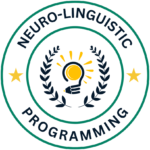It’s no secret that maintaining high levels of client motivation is crucial for the success of coaching sessions. Utilizing Neuro-Linguistic Programming (NLP) techniques can be a powerful tool to boost client motivation and drive positive change. By incorporating NLP methods such as reframing, anchoring, and language patterns, coaches can help clients overcome limiting beliefs, set meaningful goals, and stay focused on their desired outcomes. In this blog post, we will explore how NLP techniques can be effectively used to enhance client motivation in coaching sessions.
Core Principles of NLP in Coaching
The Communication Model
One of the core principles of NLP in coaching is understanding the communication model. This model emphasizes that communication is a two-way street, involving both sending and receiving messages. By being aware of non-verbal cues, tone of voice, and body language, coaches can better understand their clients’ thoughts and feelings, leading to more effective coaching sessions.
Goals and Desired Outcomes in NLP
On the other hand, goals and desired outcomes play a crucial role in NLP coaching. Setting clear and achievable goals with clients is vital for guiding the coaching process towards success. NLP techniques help clients clarify their goals, visualize their desired outcomes, and develop actionable steps to achieve them.
The process of setting goals in NLP coaching involves identifying the client’s current state, exploring their desired state, and creating a roadmap of incremental steps to bridge the gap between the two. By breaking down larger goals into smaller, manageable tasks, clients are more likely to stay motivated and focused throughout their coaching journey.
NLP Techniques to Enhance Coaching Sessions
Even with the best intentions, coaching sessions can sometimes hit roadblocks when it comes to motivating clients. By incorporating Neuro-Linguistic Programming (NLP) techniques, coaches can greatly enhance their ability to engage and empower their clients. For a comprehensive understanding of how NLP can transform coaching sessions, check out 6 Ways NLP Coaching can help your clients GROW.
Rapport Building
Building a strong rapport with clients is crucial for effective coaching. NLP techniques offer valuable strategies for establishing trust and connection with clients, leading to deeper engagement and better outcomes. By mirroring body language, matching tonality, and using language patterns that resonate with the client, coaches can create a supportive and collaborative environment.
Anchoring Positive States
The ability to anchor positive states is a powerful NLP technique that can be used to help clients access desired emotions and behaviors. By associating a specific stimulus (anchor) with a positive emotional state, coaches can help clients quickly shift their mindset and overcome challenges. This technique is especially useful for boosting confidence, motivation, and resilience in clients.
To anchor positive states effectively, coaches must first help clients identify their desired emotional states and then create anchors through sensory stimuli such as touch, visual cues, or auditory triggers. By consistently pairing the anchor with the desired state during coaching sessions, clients can learn to access these states at will, leading to greater self-awareness and emotional control.

Implementing NLP Techniques
Establishing Well-Formed Outcomes
For effective coaching sessions utilizing NLP techniques, it is crucial to start by establishing well-formed outcomes with your clients. This involves defining clear, specific, and achievable goals that are positively stated and aligned with the client’s values. By helping clients articulate their desired outcomes in this manner, coaches can guide them towards creating a compelling vision of their future success.
Reframing Perspectives
Outcomes can be significantly influenced by the perspectives individuals hold. By incorporating NLP techniques, coaches can help clients reframe their perspectives on challenges and setbacks. This involves guiding them to view obstacles as opportunities for growth, fostering a positive mindset that empowers them to overcome hurdles and achieve their goals.
It is crucial to help clients understand that their perceptions and interpretations of events can greatly impact their motivation and success. By reframing perspectives, clients can shift from a mindset of limitation to one of possibility, enabling them to approach challenges with resilience and optimism.
Measuring Success and Ongoing Improvement
Feedback Mechanisms in NLP Coaching
For effective NLP coaching, feedback mechanisms play a crucial role in measuring the success of the sessions. By encouraging open communication between the coach and the client, valuable insights can be gained on the progress made, areas of improvement, and overall satisfaction levels. Feedback mechanisms in NLP coaching help in fine-tuning the techniques used, addressing any challenges faced, and ensuring that the client’s goals are being met effectively.
Continuous Learning and Adaptation
An important aspect of NLP coaching is continuous learning and adaptation. As the coaching sessions progress, the coach needs to adapt their techniques based on the client’s responses and feedback. This adaptive approach ensures that the coaching remains relevant and impactful, leading to sustainable and positive changes in the client’s mindset and behavior.
Continuous learning and adaptation in NLP coaching involve staying updated on the latest developments in the field, honing the coach’s skills through additional training, and being open to incorporating new strategies to enhance the effectiveness of the sessions. This ongoing commitment to learning and adaptation not only benefits the client but also helps the coach grow professionally and stay at the forefront of NLP coaching practices.
Conclusion
Following this exploration of NLP techniques for improving client motivation in coaching sessions, it is evident that these tools can greatly enhance the effectiveness of the coaching process. By utilizing techniques such as reframing, anchoring, and visualization, coaches can help clients overcome limiting beliefs, tap into their inner resources, and set and achieve meaningful goals. Incorporating NLP into coaching sessions can lead to increased client engagement, motivation, and ultimately, success in reaching their desired outcomes. Coaches who integrate NLP techniques into their practice can empower their clients to make lasting positive changes in their lives.
FAQ
Q: How Can NLP Techniques Improve Client Motivation In Coaching Sessions?
A: NLP techniques can improve client motivation in coaching sessions by helping clients overcome limiting beliefs, set achievable goals, and reframe negative thought patterns.
Q: What are some common NLP techniques used to enhance client motivation?
A: Common NLP techniques used to enhance client motivation include visualization, anchoring, reframing, and language pattern analysis.
Q: How does visualization help improve client motivation in coaching sessions?
A: Visualization helps improve client motivation by enabling clients to mentally rehearse achieving their goals, creating a sense of accomplishment and motivation to take action.
Q: Can NLP techniques be customized to suit individual client needs in coaching sessions?
A: Yes, NLP techniques can be customized to suit individual client needs by tailoring interventions based on the client’s preferences, communication style, and motivation triggers.
Q: How can coaches integrate NLP techniques into their coaching practice to enhance client motivation?
A: Coaches can integrate NLP techniques into their coaching practice by undergoing NLP training, practicing NLP exercises, and gradually incorporating techniques into coaching sessions to support client motivation and goal attainment.





